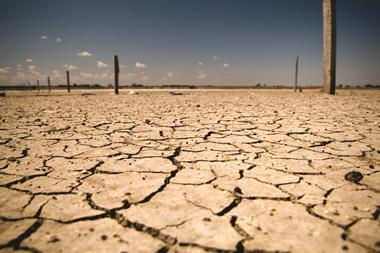Philip Ball asks why chemistry seems to have more than its share of global warming’s opponents
‘While global warming is recognised, I am not sure that all the reasons have been fully explored. Carbon dioxide is a contributor, but what about cyclic changes caused by the Earth’s relationship in distance to the Sun?’
‘While climate change is occurring, the drivers of change are less clear.’
It’s those pesky climate sceptics again, right? Well yes – but these ones read Chemistry & Industry, and are therefore likely to be chemists of some description. When the magazine ran a survey in 2007 on its readers’ attitudes to climate change, it felt compelled to admit that ‘there are still some readers who remain deeply sceptical of the role of carbon dioxide in global warming, or of the need to take action’.
The respondents who felt that ‘the industry should be doing more to help tackle climate change’ were in a clear majority of 72% – but that left 28% who didn’t. This is even more than the one in five members of the general population who, as the IPCC releases its fifth report on climate change, now seem to doubt that global warming is real.
Are chemists more prone to climate scepticism than other scientists?
This squares with my subjective impression, on seeing the letters pages of Chemistry World (and its predecessor) over the years. The proportion of this magazine’s readers who are climate sceptics seems rather higher than the 3% of the world’s climate scientists apparently still undecided about the causes (or reality) of global warming. A letter from 2007 complaining about ‘the enormous resources being put into the campaign to bring down carbon emissions on the debatable belief that atmospheric carbon dioxide is the main driver of climate change rather than the result of it’ is fairly representative of this subset.
Could it be that chemists are somehow more prone to climate scepticism than other scientists? I believe there is reason to think so, although I am of course aware that some of you might already be sharpening your quills.
One of the most prominent sceptics has been Jack Barrett, formerly a well-respected chemical spectroscopist at Imperial College London, UK. Barrett now runs the campaigning group Barrett Bellamy Climate with another famous sceptic, naturalist David Bellamy. Several other high-profile merchants of doubt trained as chemists, such as Nicholas Drapela (fired by Oregon State University last year) and Andrew Montford. It’s not clear if there is strong chemical expertise in the Australian climate-sceptic Lavoisier Group, but they choose to identify themselves with Lavoisier’s challenge to the mistaken ‘orthodoxy’ of phlogiston.
If, as I suspect, a chemical training seems to confer no real insulation against the misapprehensions evident in the public, why should that be? One possible reason is that anyone who has spent a lifetime in the chemical industry (especially petrochemicals), assailed by the antipathy of some eco-campaigners to anything ‘chemical’, will be likely to develop an instinctive distrust of scare stories about environmental issues. That would be understandable, even if it were motivated more by heart than mind.
But I wonder if there’s another factor too. (Given that I’ve already dug a hole with some readers, I might as well jump in.) If I were asked to make gross generalisations about the character of different fields of science, I would suggest that physicists are idealistic, biologists are conservative, and chemists are best described by that useful rustic Americanism, ‘ornery’. None of these are negative judgements – they all have pros as well as cons. But there does seem to be a contrarian streak that runs through the chemically trained, from William Crookes and Henry Armstrong to James Lovelock, Kary Mullis, Martin Fleischmann and of course the king of them all, Linus Pauling (who I’d have put money on being some kind of climate sceptic). This is part of what makes chemistry fun, but it is not without its complications.
In any event, it could be important for chemists to consider whether (and if so, why) there is an unusually high proportion of climate-change doubters in their ranks. Of course, it’s equally true that chemists have made major contributions to the understanding of climate, beginning with Svante Arrhenius’s intuition of the greenhouse effect in 1896 and continuing through to the work of atmospheric chemists such as Paul Crutzen. Spectroscopists have played a vital role in understanding the issues in the planet’s radiative balance, and chemists have been foremost in identifying and tackling other environmental problems such as ozone depletion and acid rain. Chemistry has a huge part to play in finding solutions to the daunting problems that the IPCC report documents. A vocal contingent of contrarians won’t alter that.











No comments yet